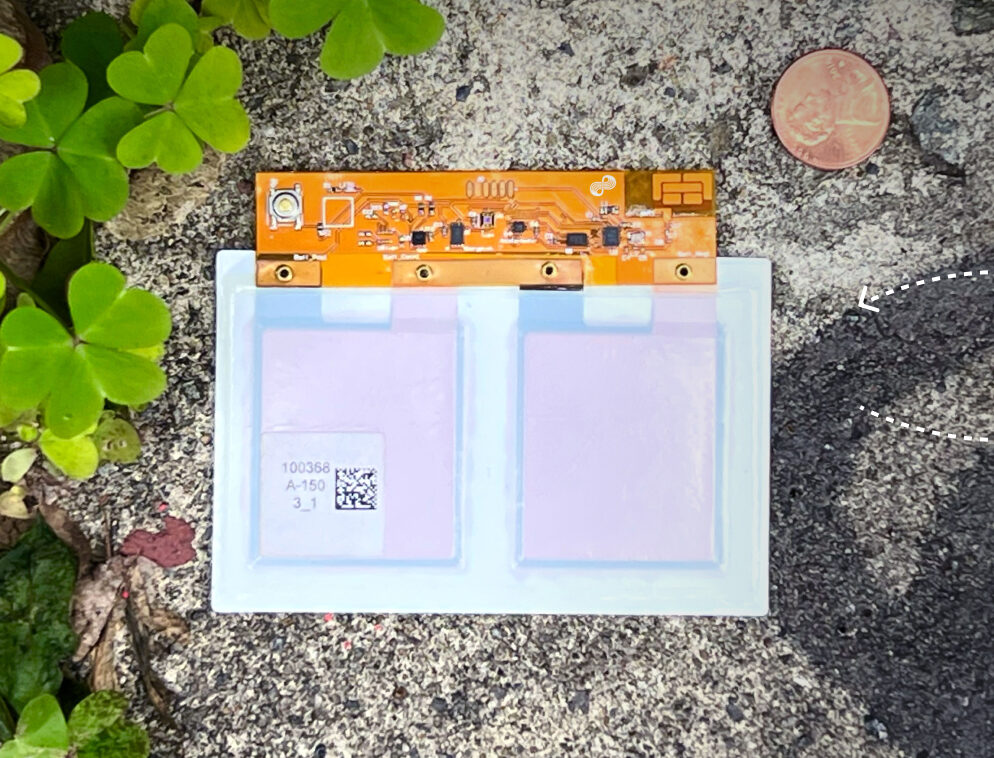Πηγαίνετε εκτός σύνδεσης με την εφαρμογή Player FM !
Episode 431: Why Josh.ai added ChatGPT to the home
Manage episode 371207446 series 2015413
This week on the show, Kevin and I start off talking about some of the Roku gear I’ve been playing with for the last week. We discuss the gear and the subscription plans and how they compare with what else is on the market, before moving on to talk about Latch laying off 59% of its workforce in preparation for what I suspect will be a pivot from access control to a services business aimed at folks living in luxury apartments. After that, we share some tales of civil disobedience from San Francisco, where activists are placing traffic cones on top of self-driving vehicles to halt them in their tracks. Then we devote the rest of our time to novel sensors and platforms for sensing, starting with research showing that seven days of smart watch data can predict Parkinson’s, and research on a wearable for people with epilepsy that can predict seizures. We also cover funding for Pano, a camera platform that uses computer vision to “see” fires in remote locations, and a sensing platform called Nami raising $10 million in Series A financing. There’s also a new sensing device called the Nano Computer from Nodle that combines a few sensors, an Arm M-0 microcontroller, a Bluetooth radio, and a printed battery in a device that should cost about $3 per device at shipments above 100,000 devices. Finally, we answer a listener question about the Aqara FP2 presence sensor and security.

Our guest this week is Alex Capecelatro, CEO and co-founder of Josh.ai, who returns to the show to talk about Josh.ai adding generative AI to the company’s voice platform. We get a lesson in Josh.ai’s history and why it decided to build a voice interface for the home even after Apple, Amazon, and other big companies launched their own products. Then he explains how Josh.ai added ChatGPT to its platform and the steps it took to help customers understand the limitations of the service. We talk about why it’s useful and how customers are using it so far. Since every company in the smart home space is contemplating the role generative AI will play in their products, this is an essential listen.
Hosts: Stacey Higginbotham and Kevin Tofel
Guest: Alex Capecelatro, CEO and co-founder of Josh.ai
Sponsors: Blynk and Particle
- Who is the Roku smart home for?
- Latch cleaned house before Jamie Siminoff takes over
- The most innovative element in the IoT is new sensing technology
- What Josh.ai learned when adding generative AI to its voice platform
- Practical thoughts on privacy for voice assistants and generative AI
The post Episode 431: Why Josh.ai added ChatGPT to the home appeared first on IoT Podcast - Internet of Things.
458 επεισόδια
Manage episode 371207446 series 2015413
This week on the show, Kevin and I start off talking about some of the Roku gear I’ve been playing with for the last week. We discuss the gear and the subscription plans and how they compare with what else is on the market, before moving on to talk about Latch laying off 59% of its workforce in preparation for what I suspect will be a pivot from access control to a services business aimed at folks living in luxury apartments. After that, we share some tales of civil disobedience from San Francisco, where activists are placing traffic cones on top of self-driving vehicles to halt them in their tracks. Then we devote the rest of our time to novel sensors and platforms for sensing, starting with research showing that seven days of smart watch data can predict Parkinson’s, and research on a wearable for people with epilepsy that can predict seizures. We also cover funding for Pano, a camera platform that uses computer vision to “see” fires in remote locations, and a sensing platform called Nami raising $10 million in Series A financing. There’s also a new sensing device called the Nano Computer from Nodle that combines a few sensors, an Arm M-0 microcontroller, a Bluetooth radio, and a printed battery in a device that should cost about $3 per device at shipments above 100,000 devices. Finally, we answer a listener question about the Aqara FP2 presence sensor and security.

Our guest this week is Alex Capecelatro, CEO and co-founder of Josh.ai, who returns to the show to talk about Josh.ai adding generative AI to the company’s voice platform. We get a lesson in Josh.ai’s history and why it decided to build a voice interface for the home even after Apple, Amazon, and other big companies launched their own products. Then he explains how Josh.ai added ChatGPT to its platform and the steps it took to help customers understand the limitations of the service. We talk about why it’s useful and how customers are using it so far. Since every company in the smart home space is contemplating the role generative AI will play in their products, this is an essential listen.
Hosts: Stacey Higginbotham and Kevin Tofel
Guest: Alex Capecelatro, CEO and co-founder of Josh.ai
Sponsors: Blynk and Particle
- Who is the Roku smart home for?
- Latch cleaned house before Jamie Siminoff takes over
- The most innovative element in the IoT is new sensing technology
- What Josh.ai learned when adding generative AI to its voice platform
- Practical thoughts on privacy for voice assistants and generative AI
The post Episode 431: Why Josh.ai added ChatGPT to the home appeared first on IoT Podcast - Internet of Things.
458 επεισόδια
Όλα τα επεισόδια
×Καλώς ήλθατε στο Player FM!
Το FM Player σαρώνει τον ιστό για podcasts υψηλής ποιότητας για να απολαύσετε αυτή τη στιγμή. Είναι η καλύτερη εφαρμογή podcast και λειτουργεί σε Android, iPhone και στον ιστό. Εγγραφή για συγχρονισμό συνδρομών σε όλες τις συσκευές.




